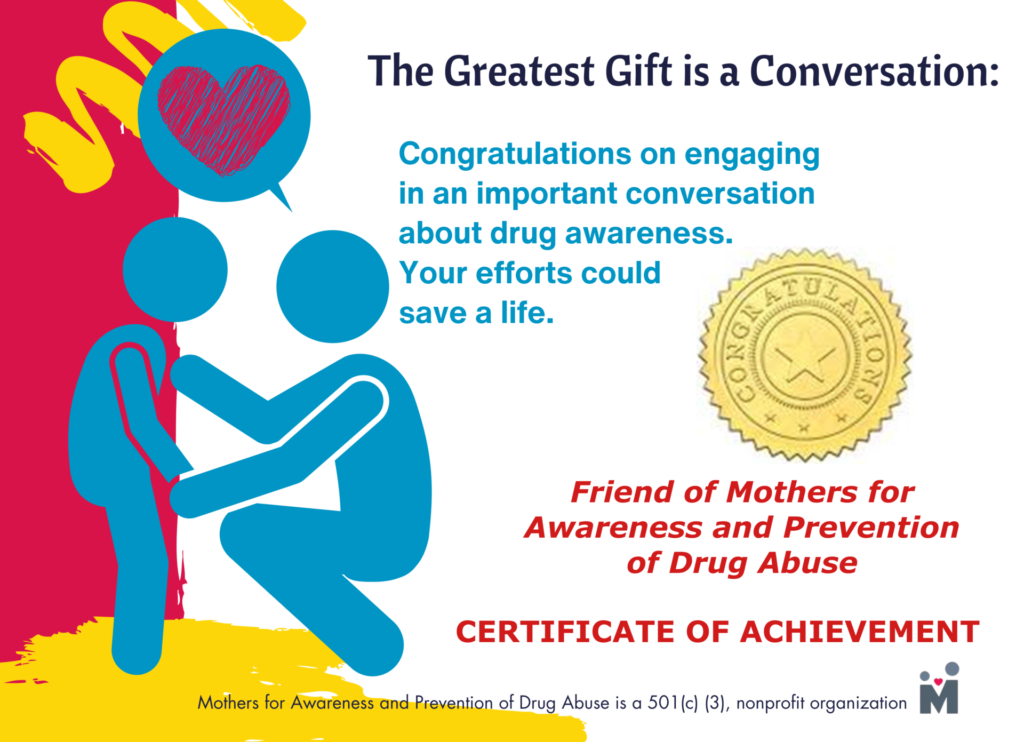The Greatest Gift is a Conversation
Take The Pledge
Take the Pledge and print your certificate. Then post your photo and tag a friend to help save lives today!
The Greatest Gift is a Conversation Having a conversation with a loved one about drug abuse is crucial for fostering understanding, offering support, and potentially guiding them towards seeking help and recovery. Print your certificate below!
Commit to helping save lives by giving the Greatest Gift:
a conversation with a loved one about the dangers of drug abuse.
Share a story of your experience, you could help others.
Join the Hundreds that have already signed.
The MAPDA Pledge Join us in taking the pledge today!
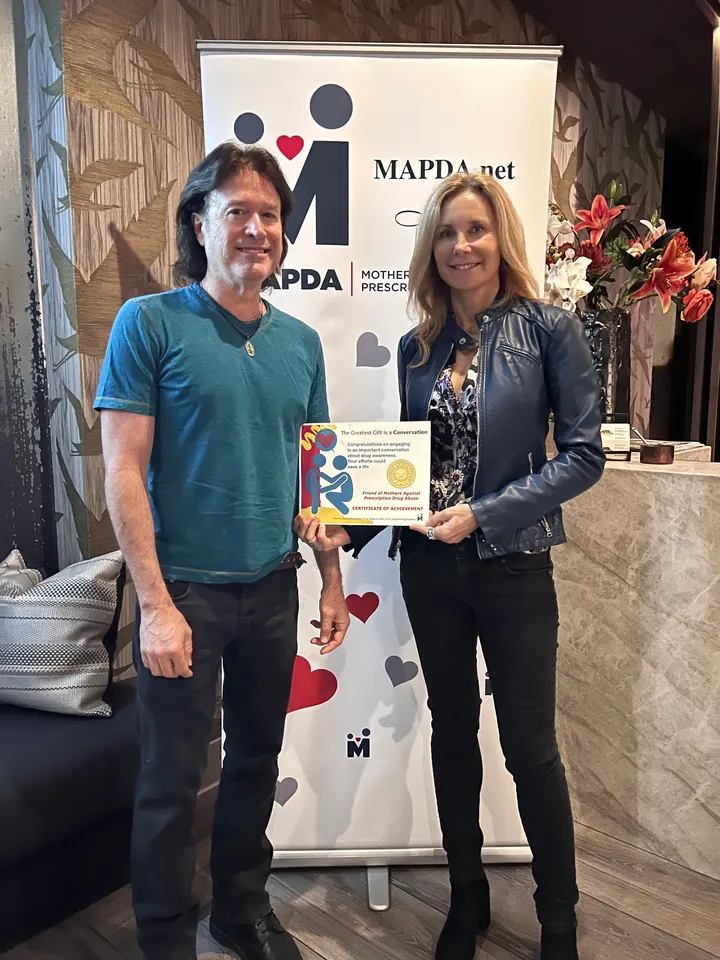
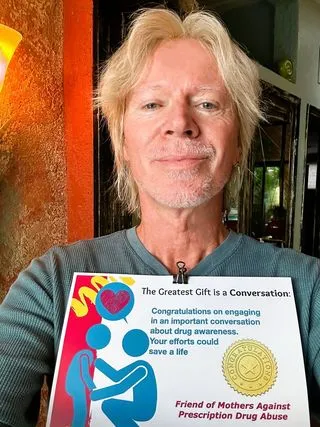
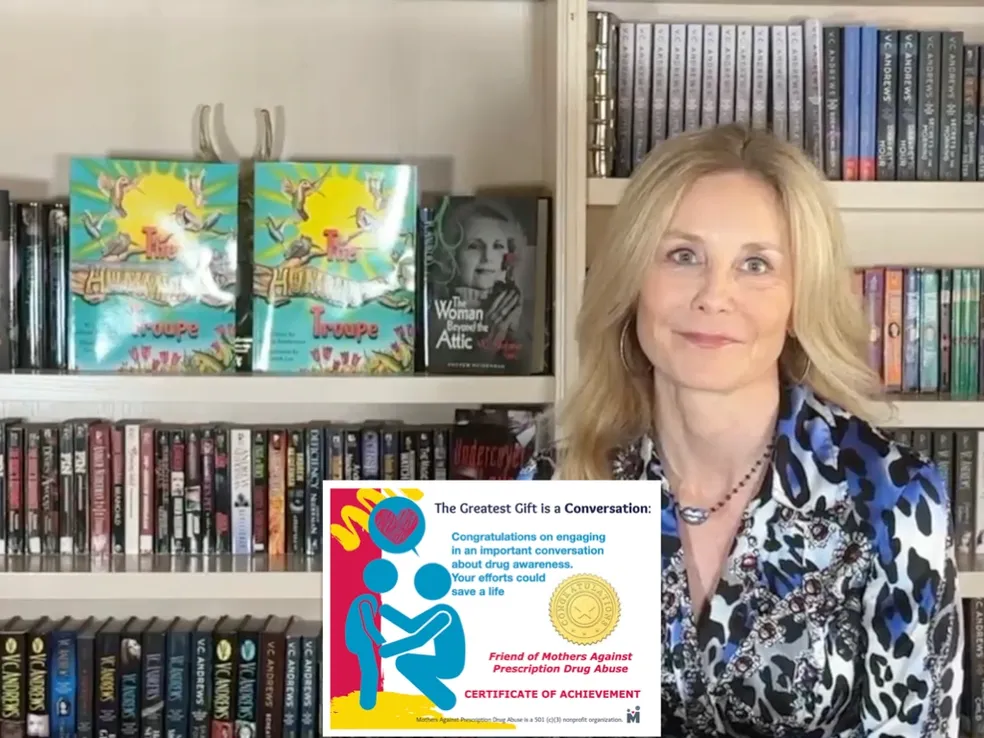
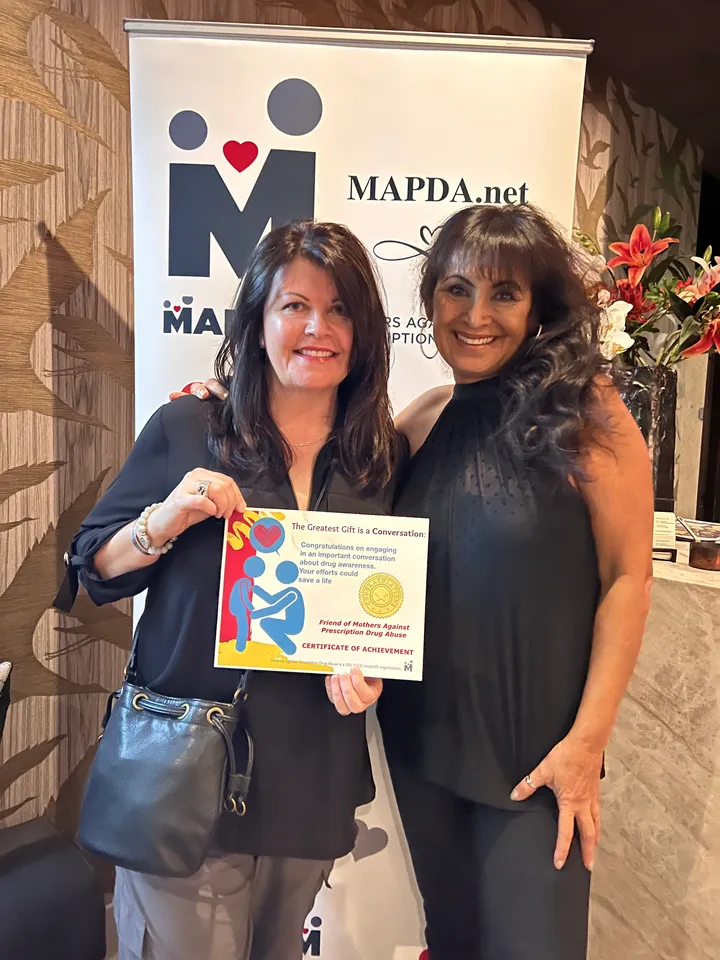
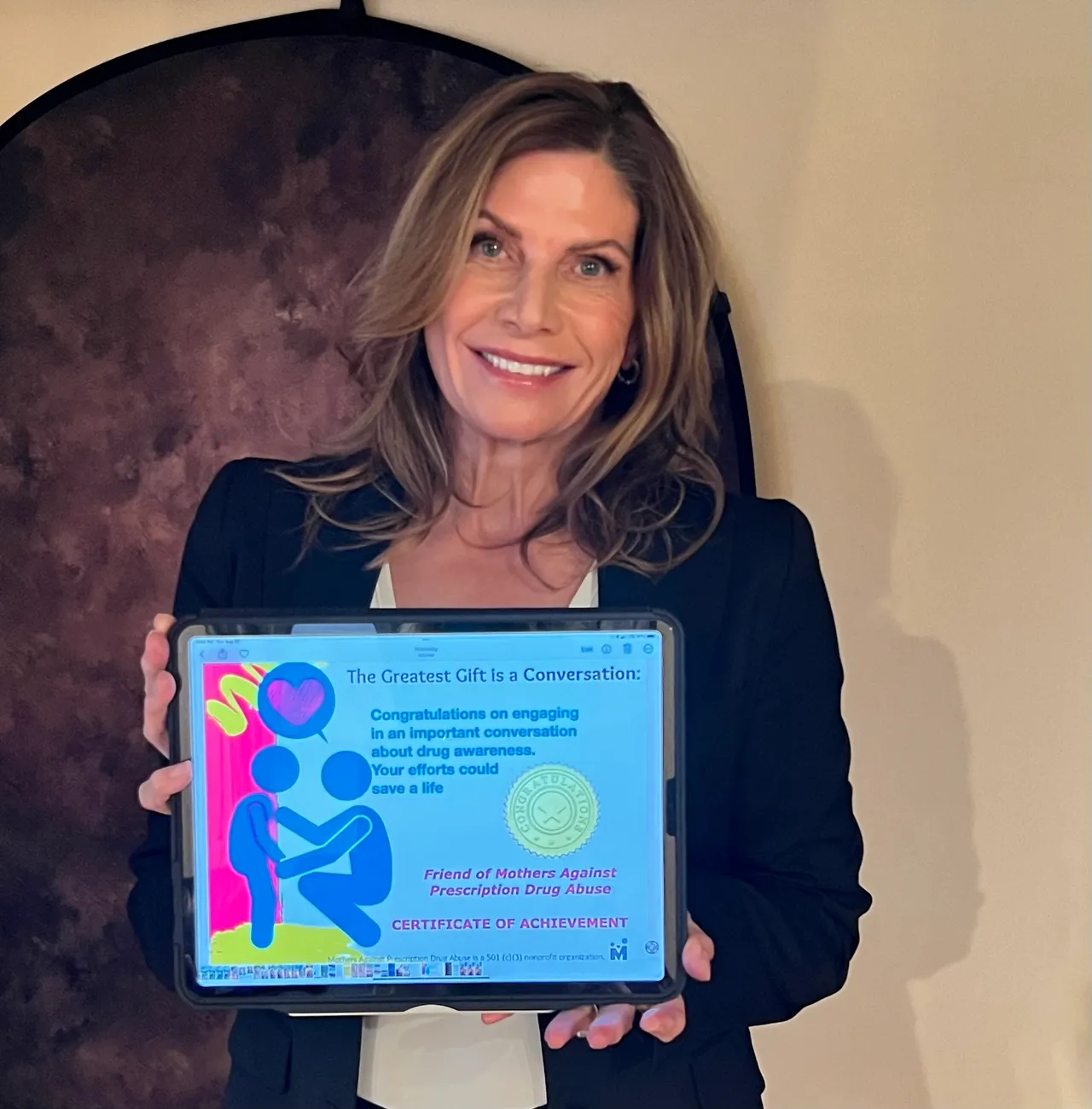
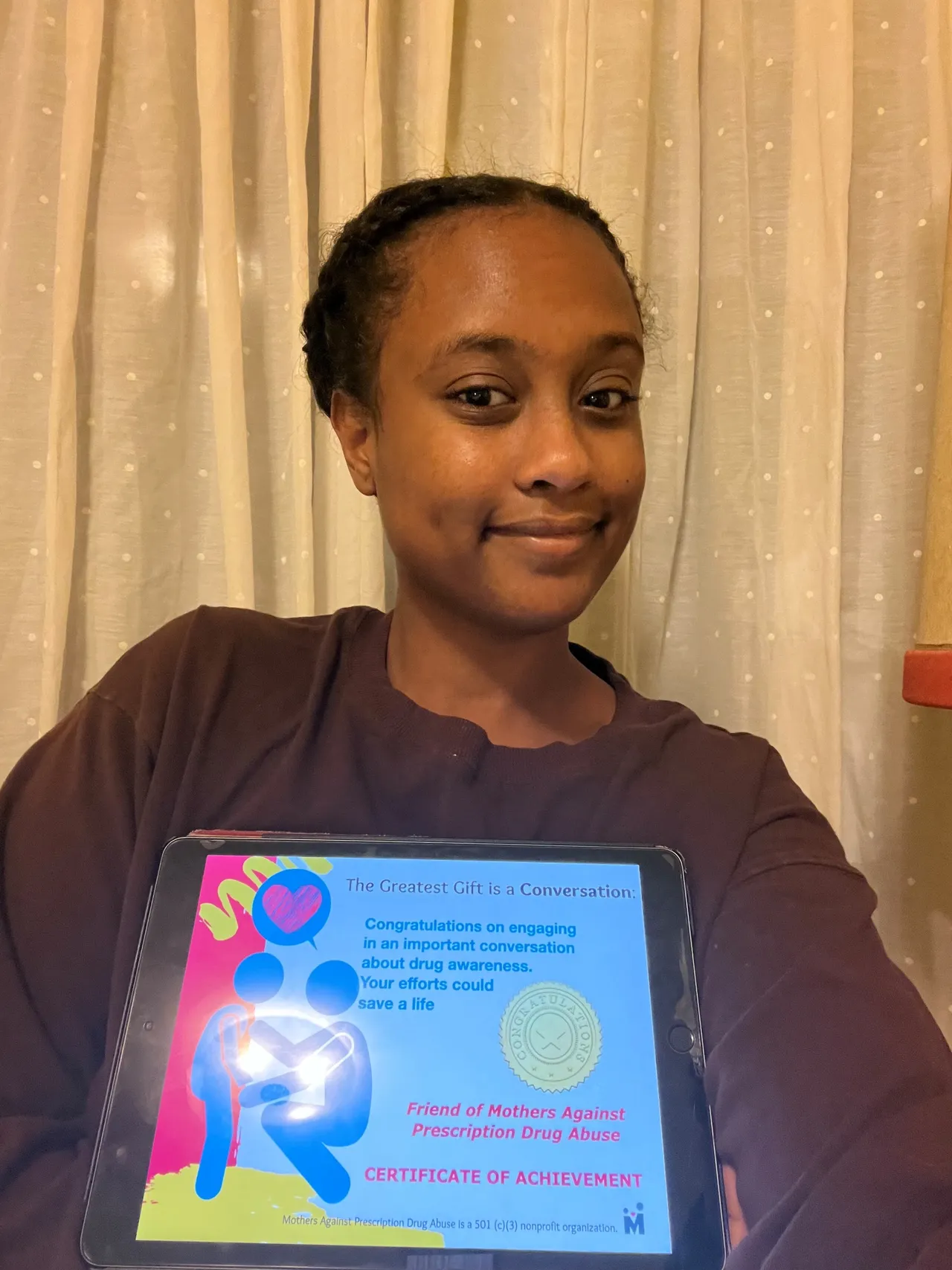
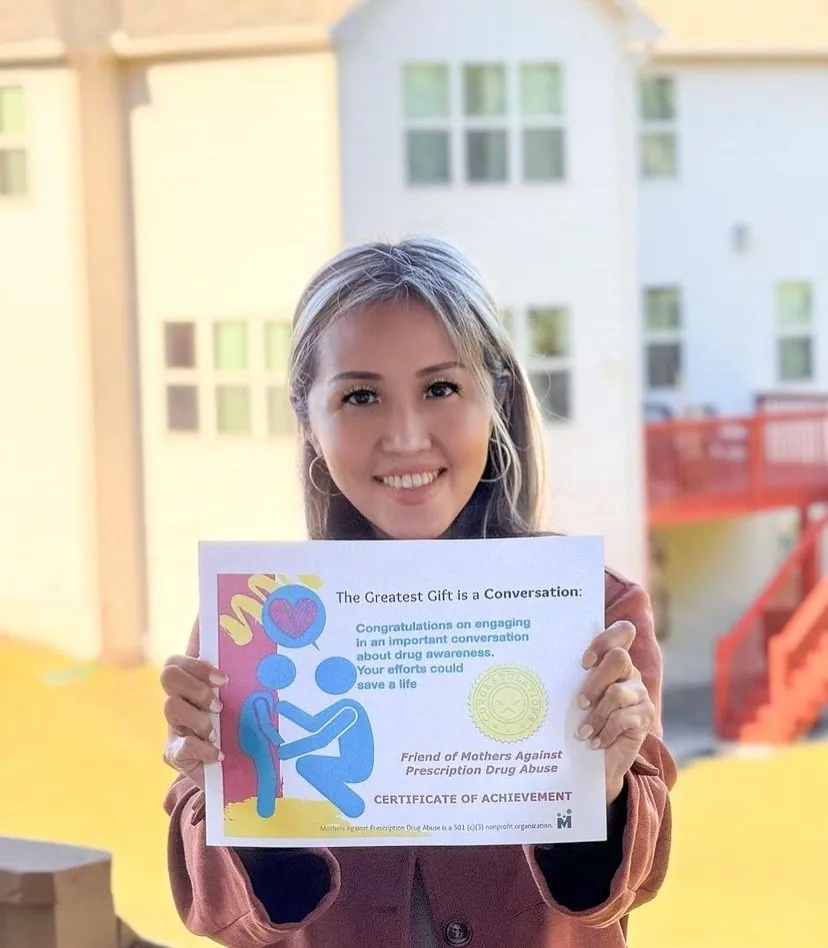
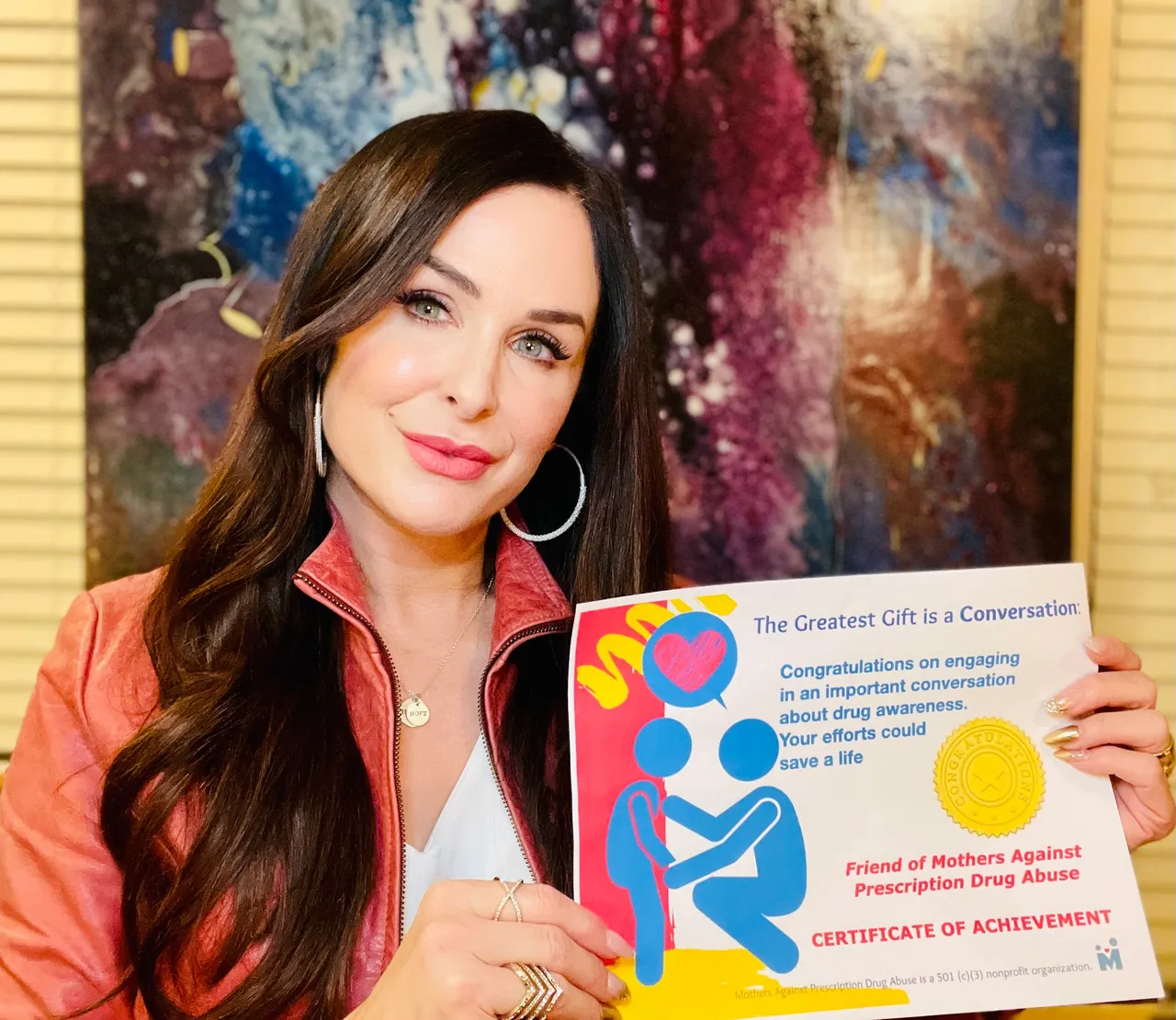
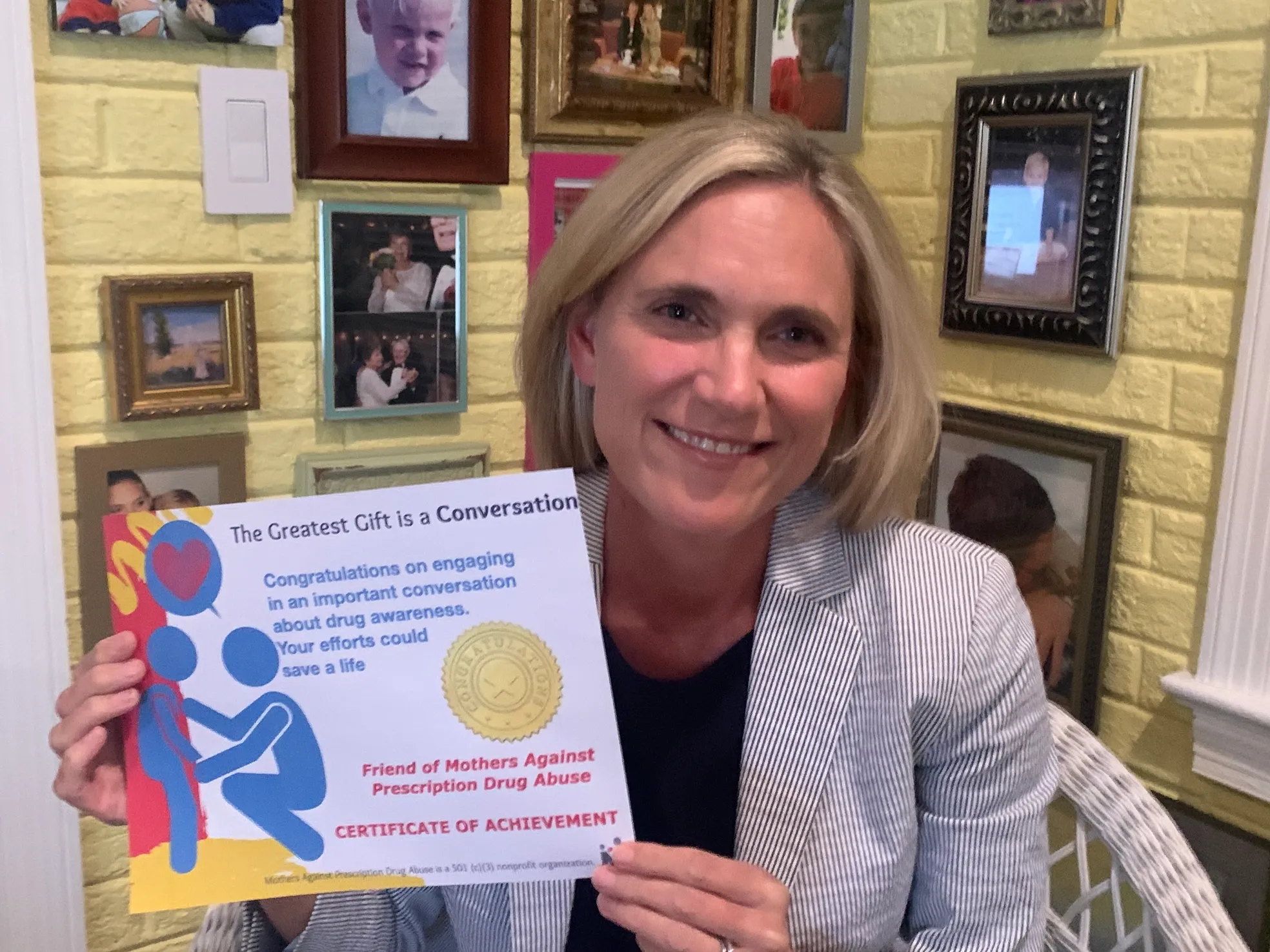
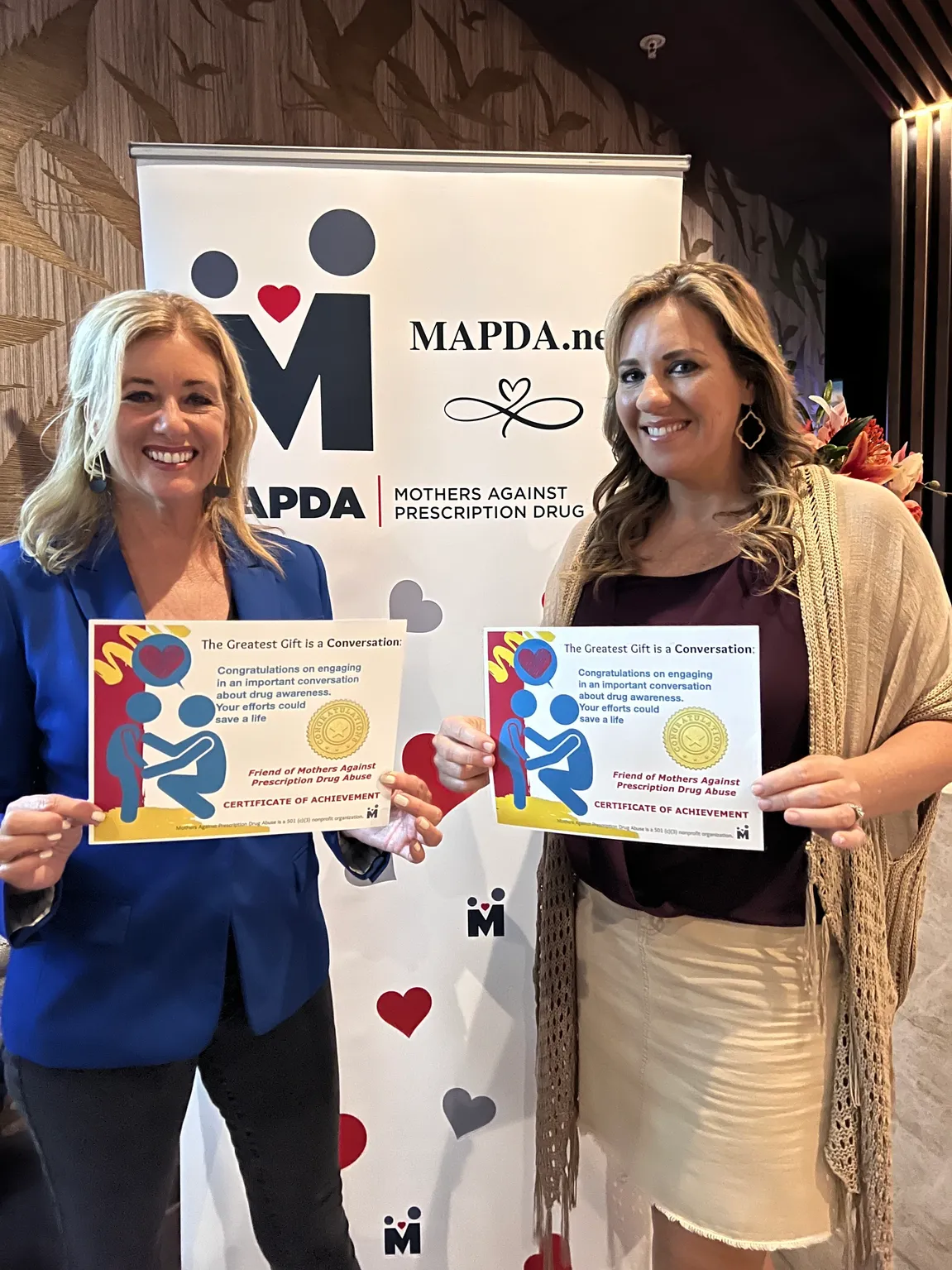
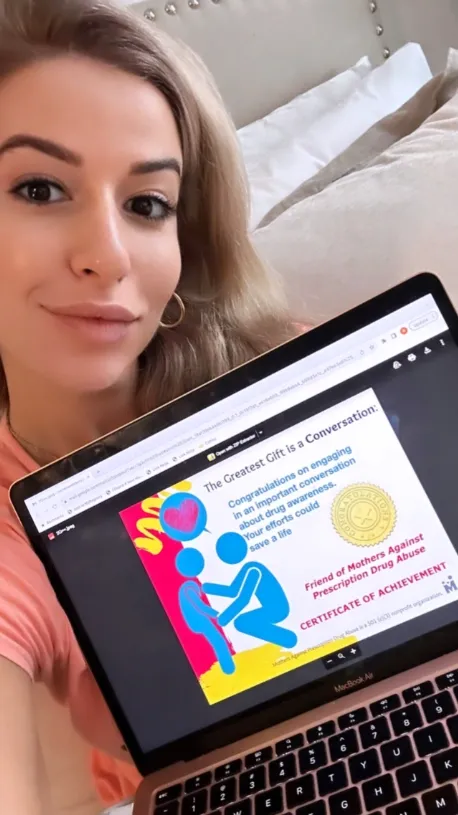
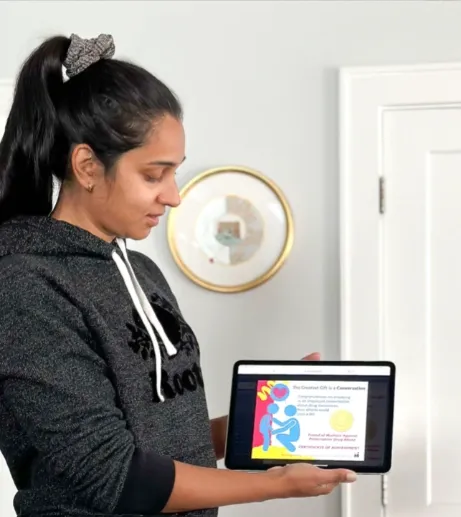
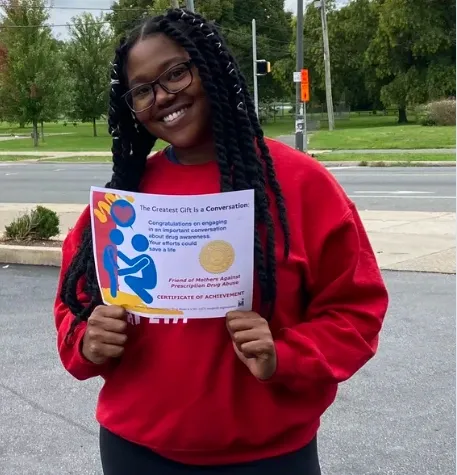
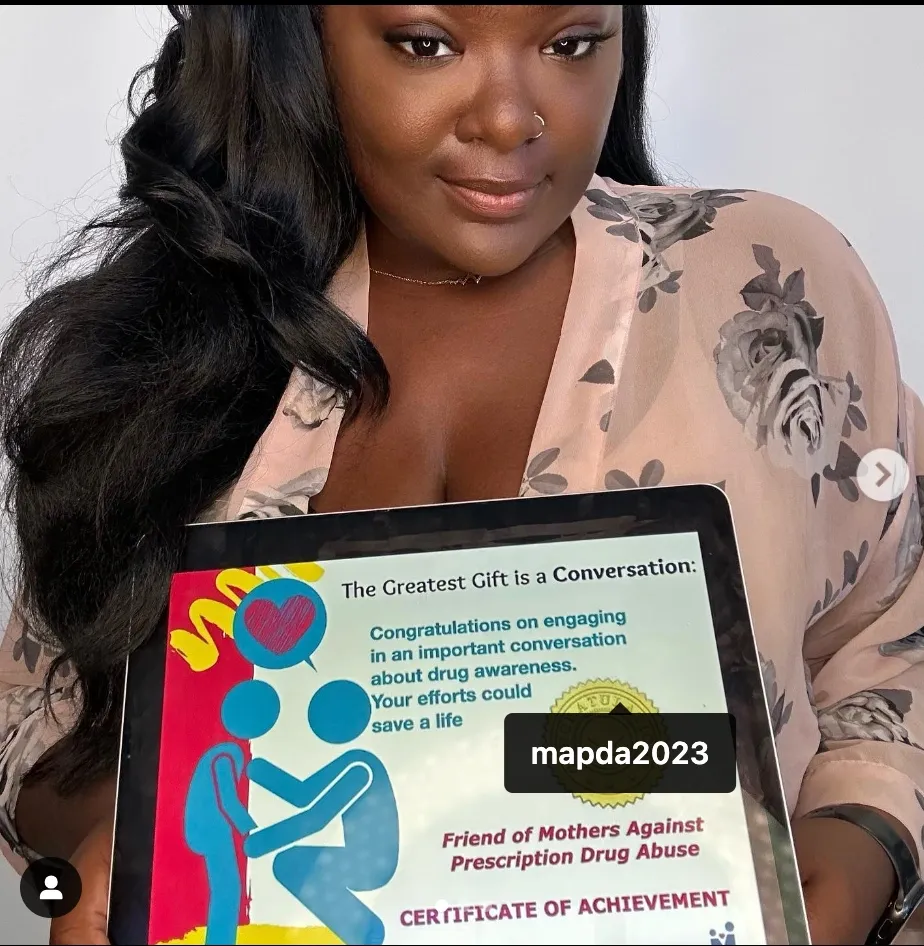
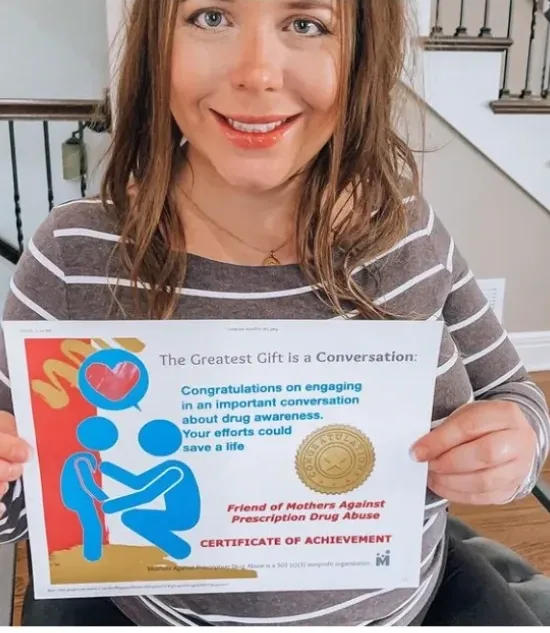

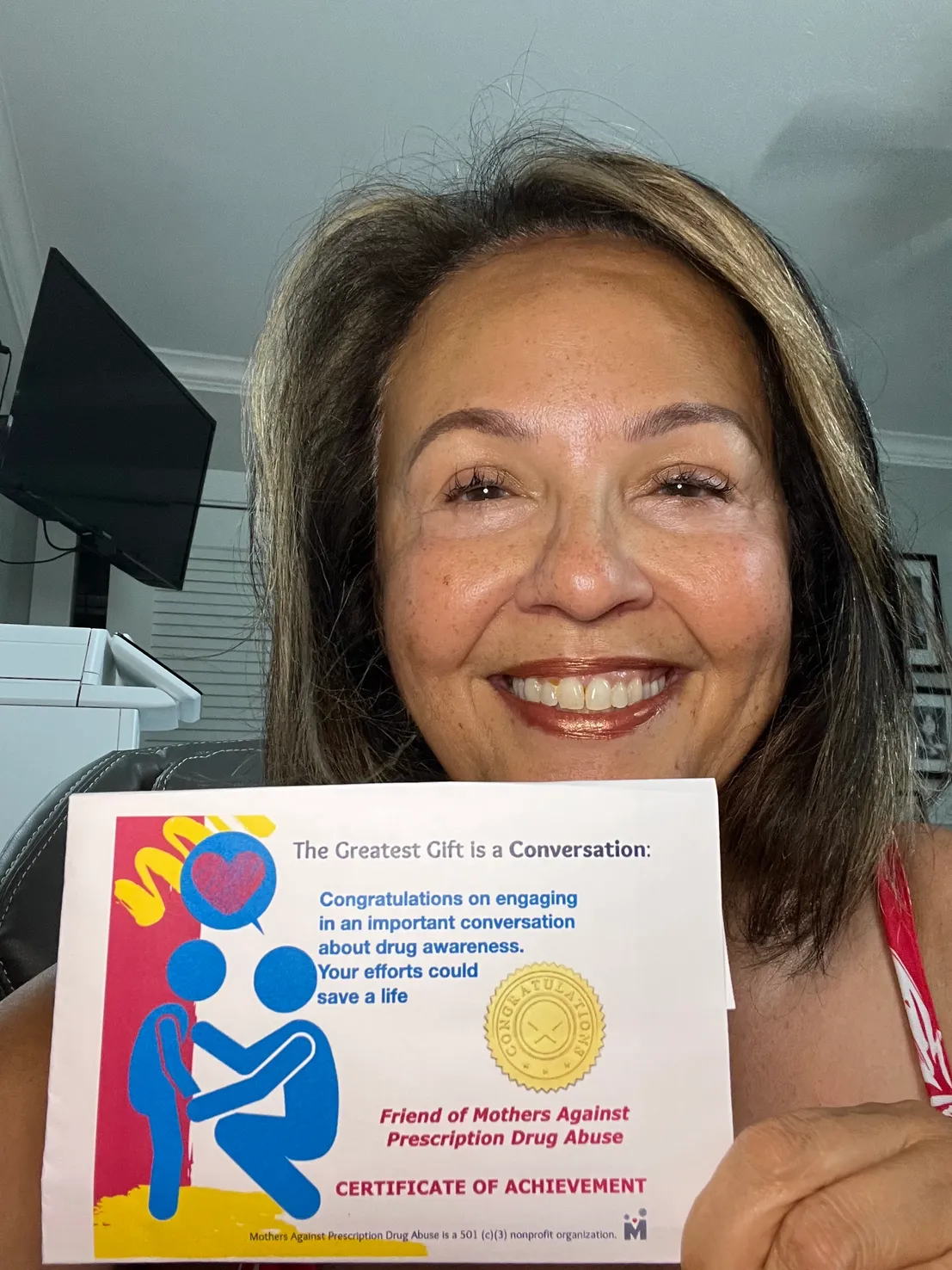
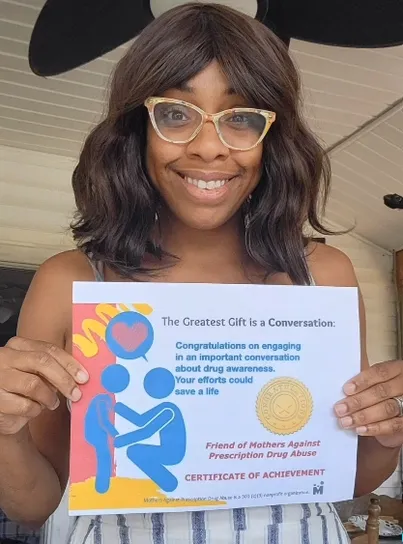
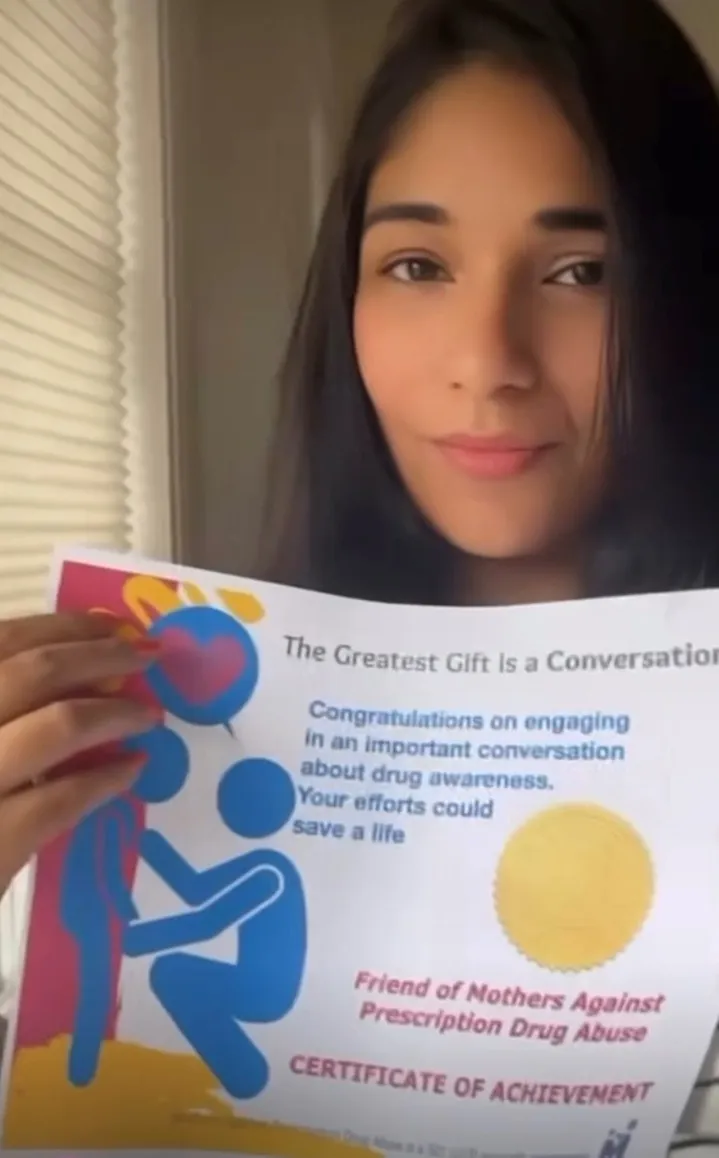
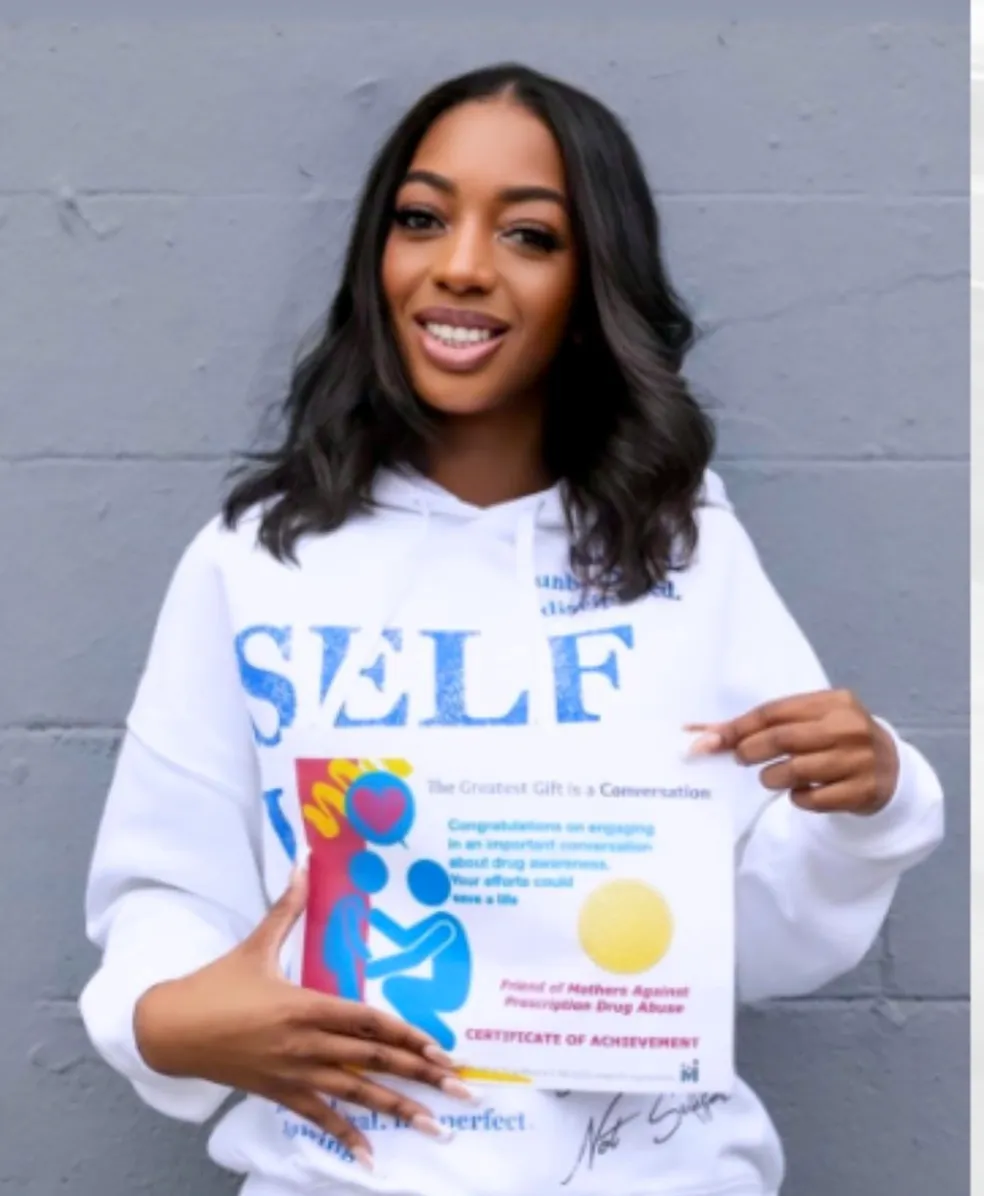
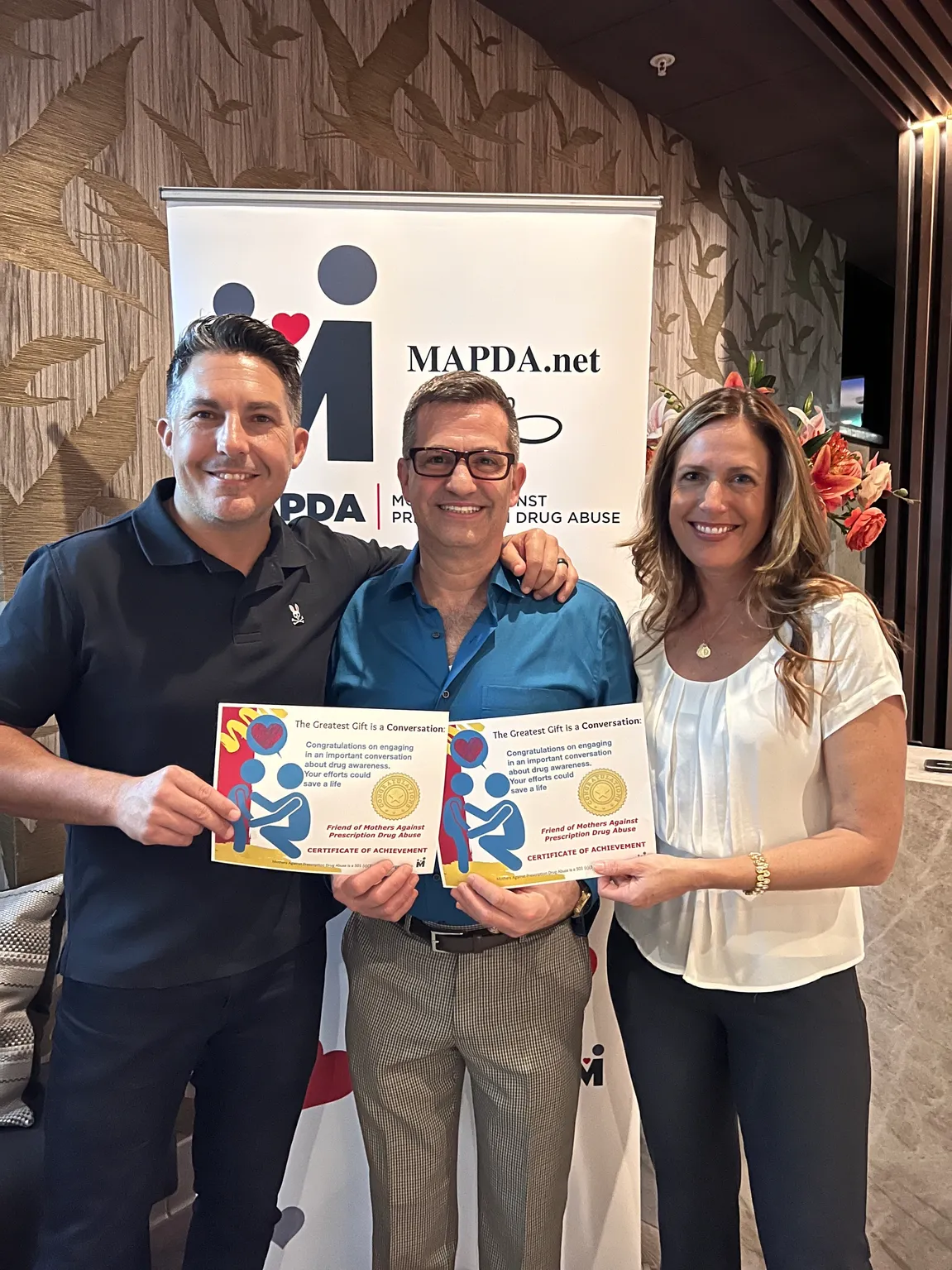
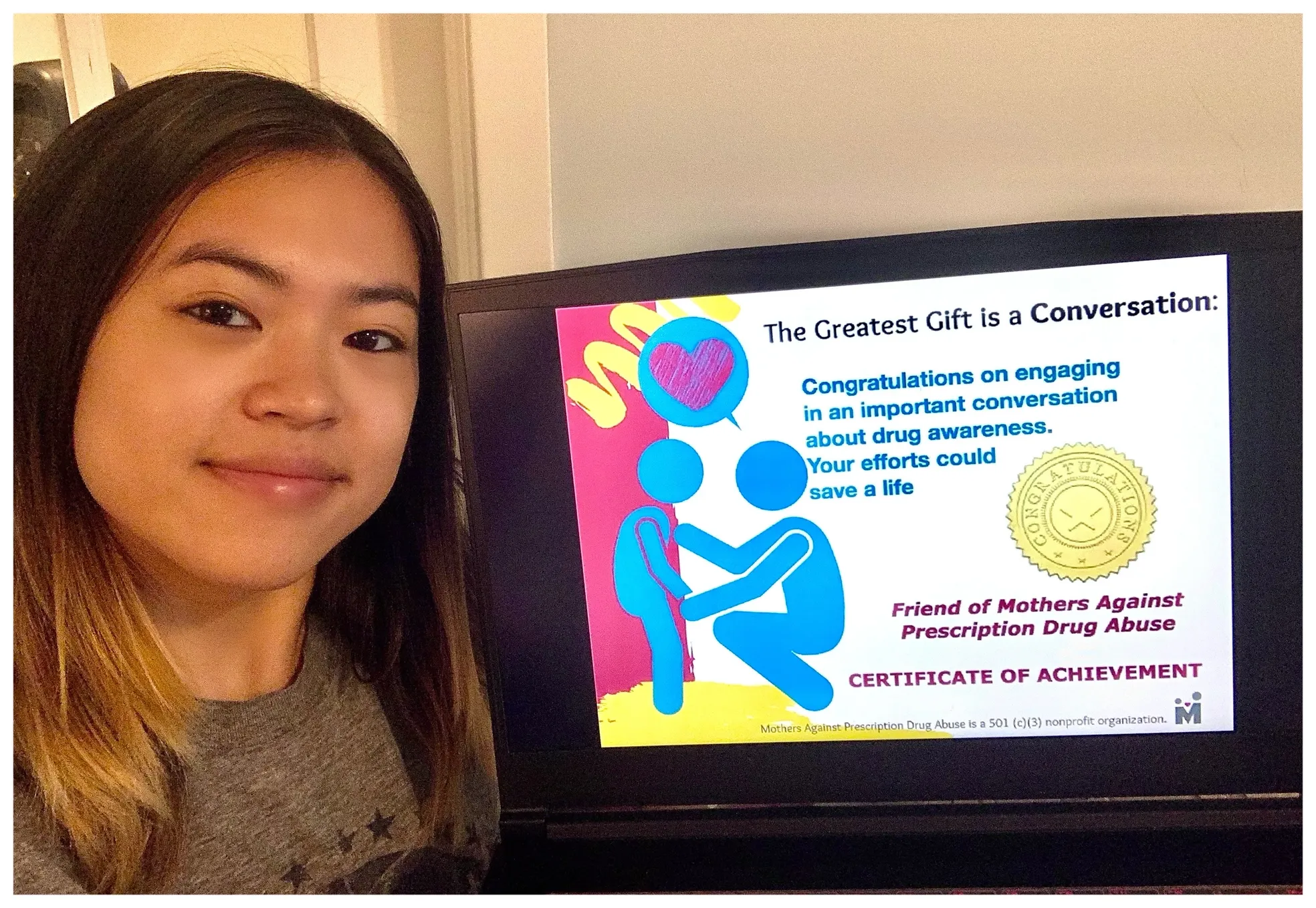
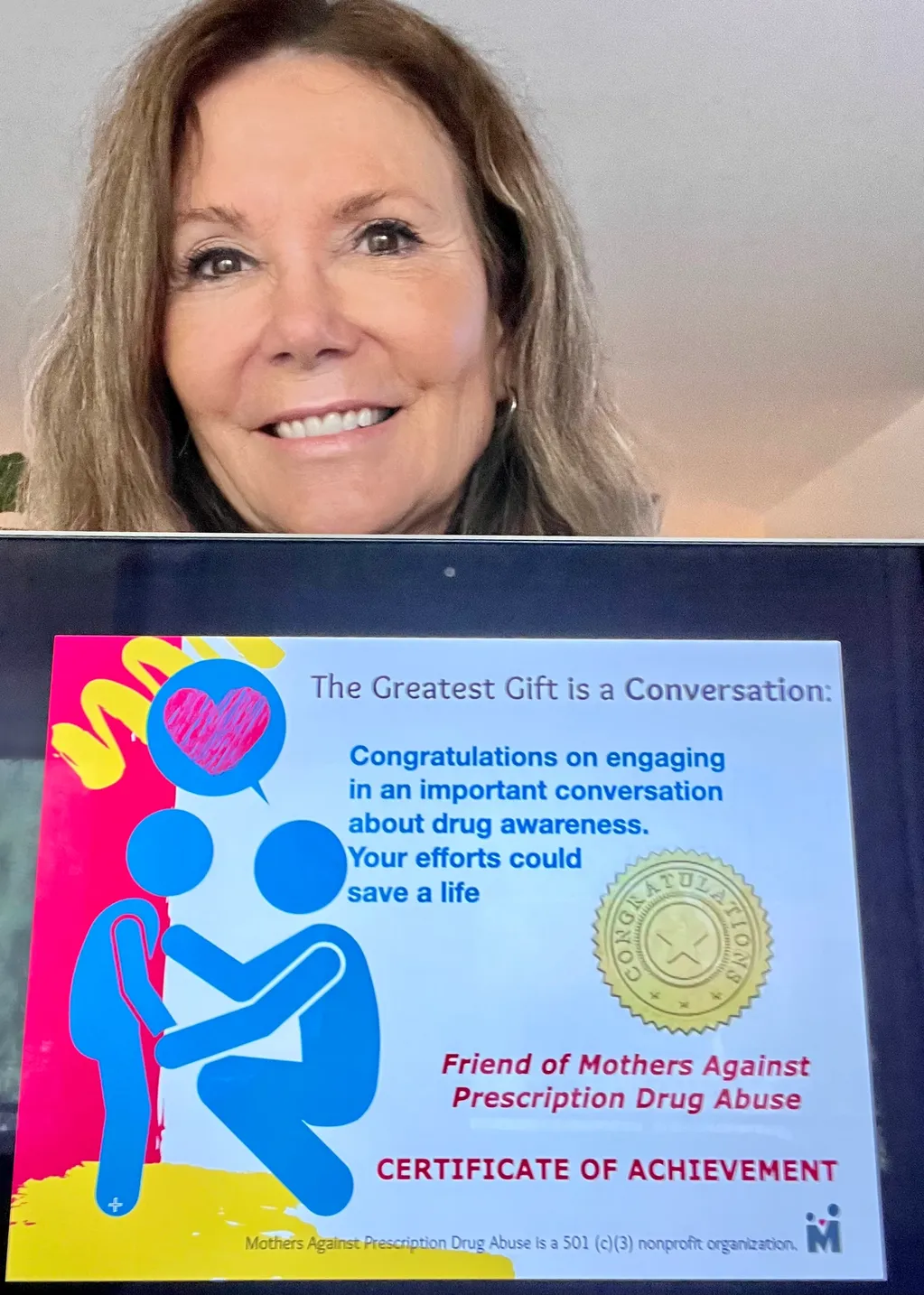
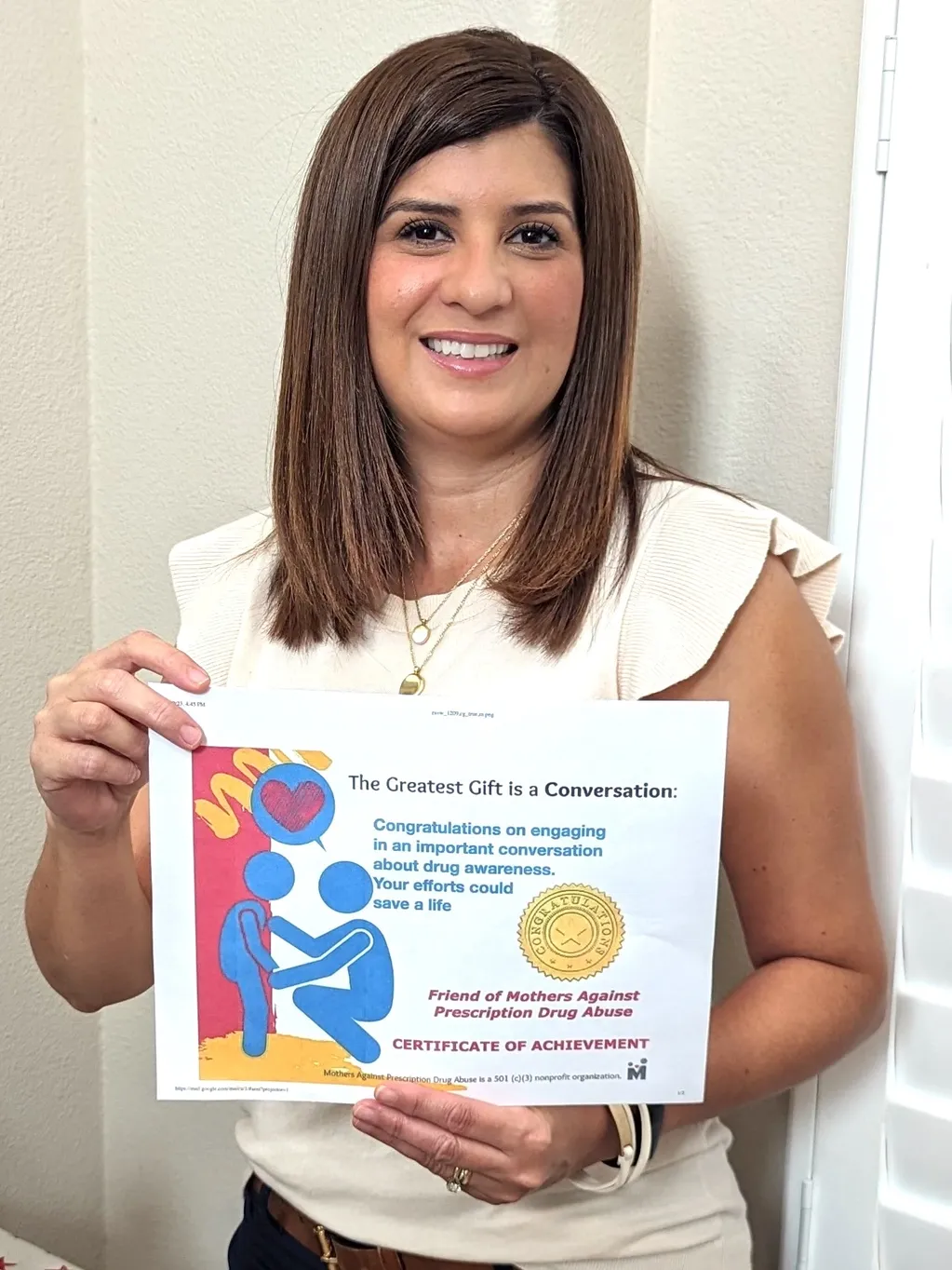
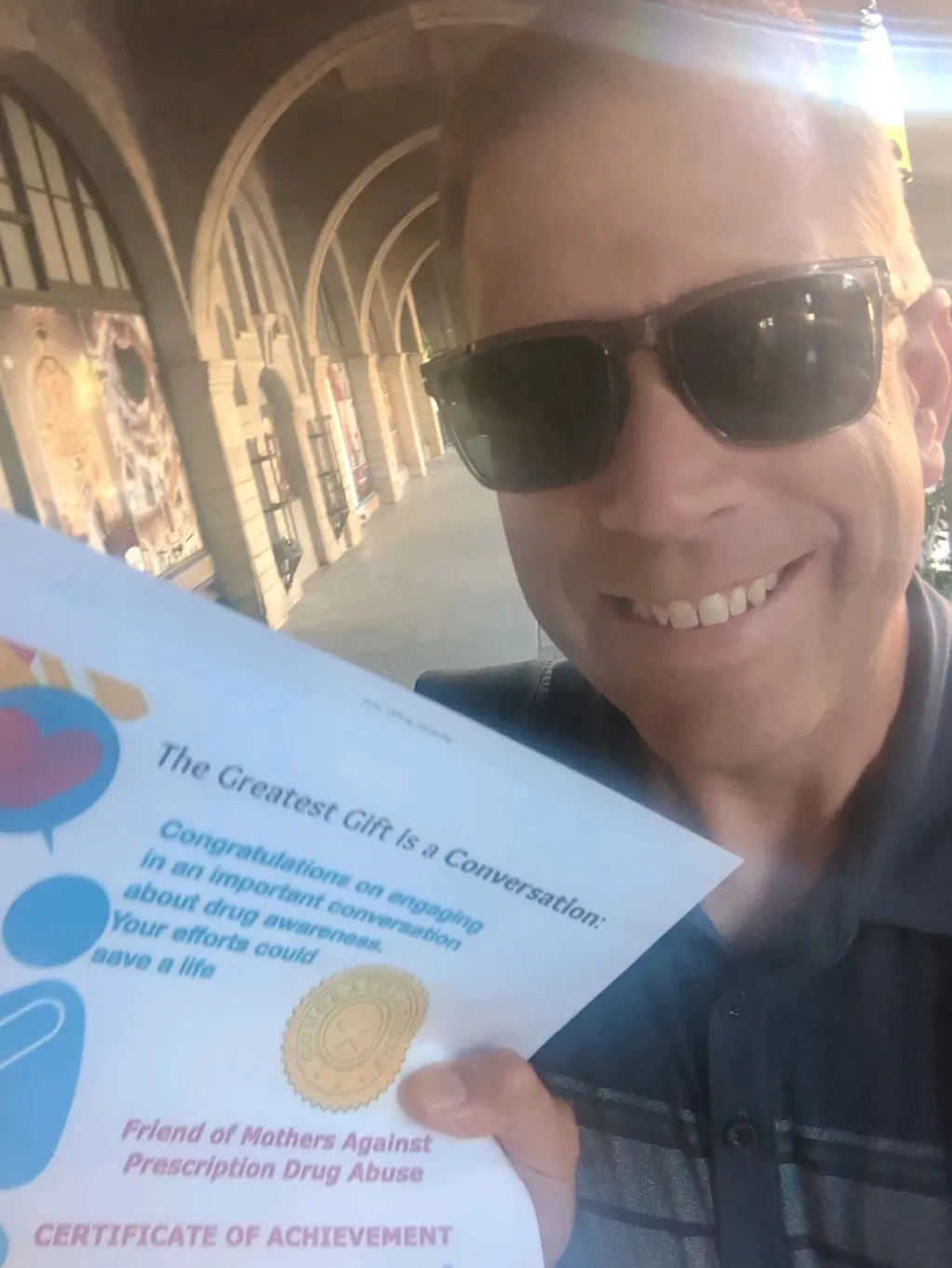
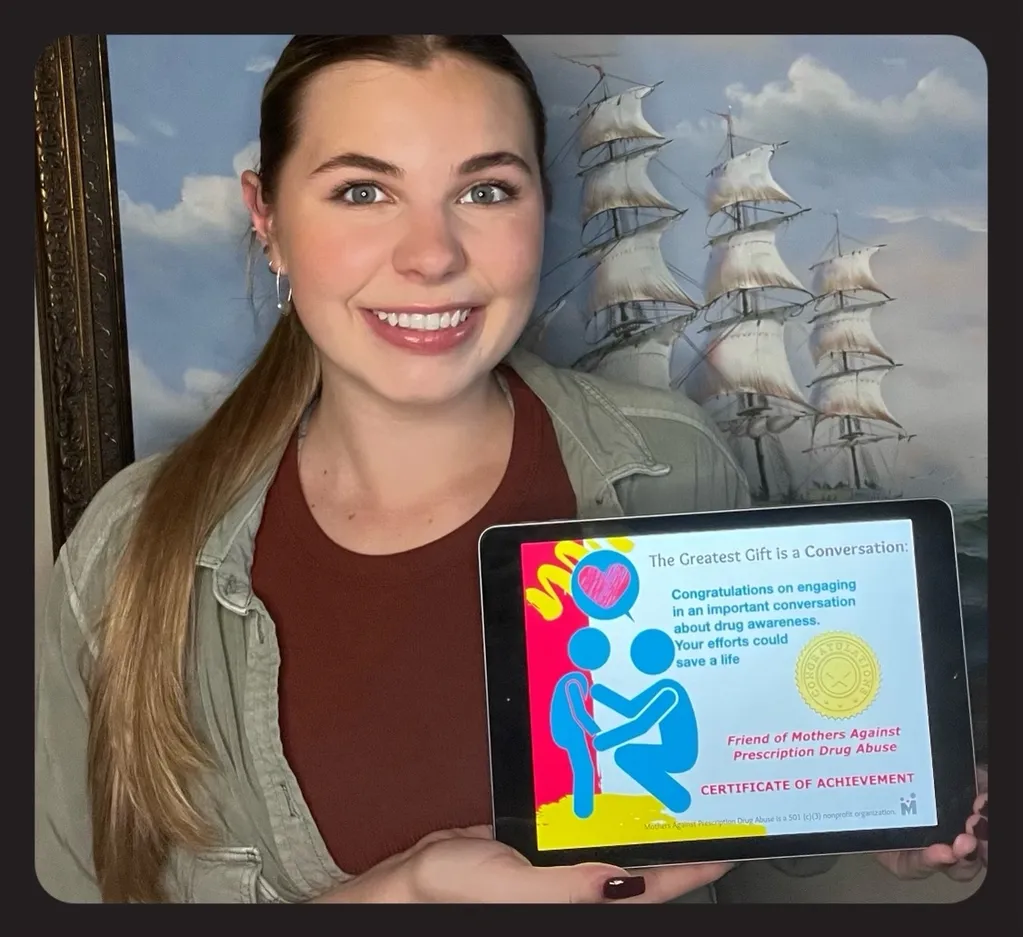
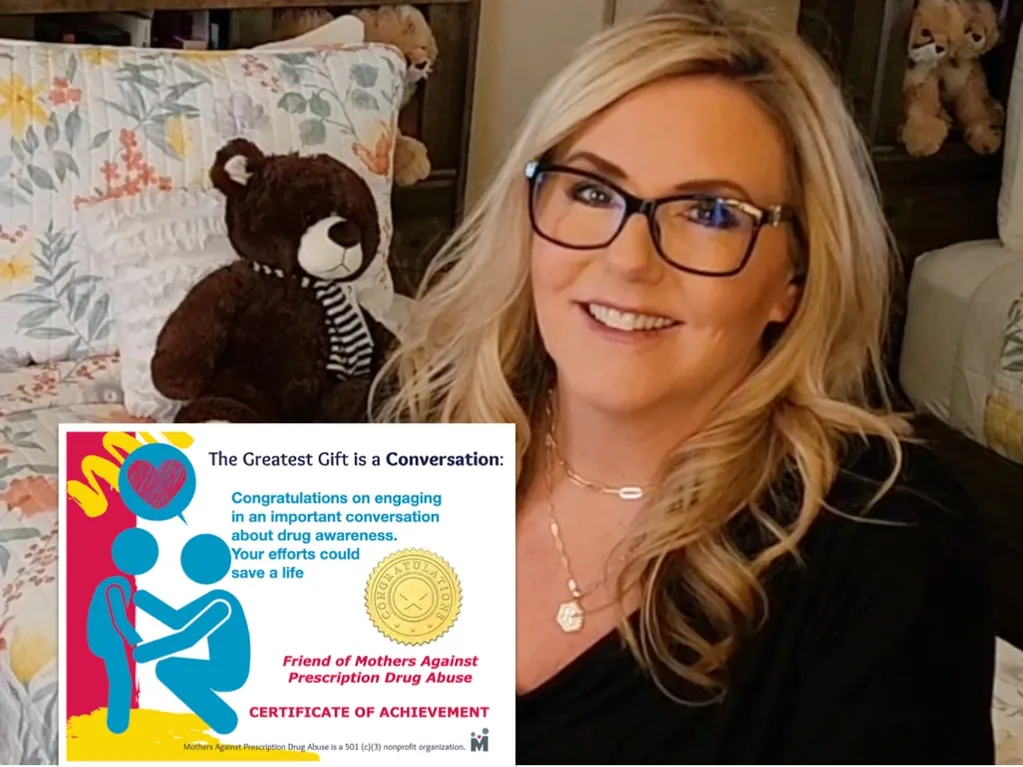
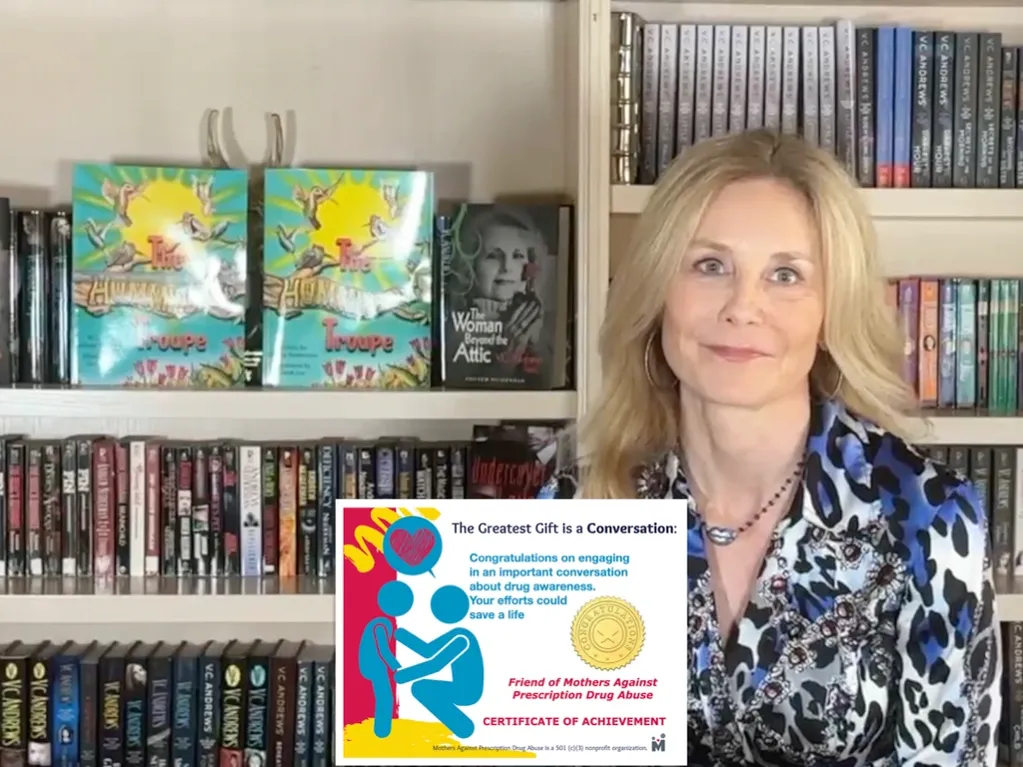
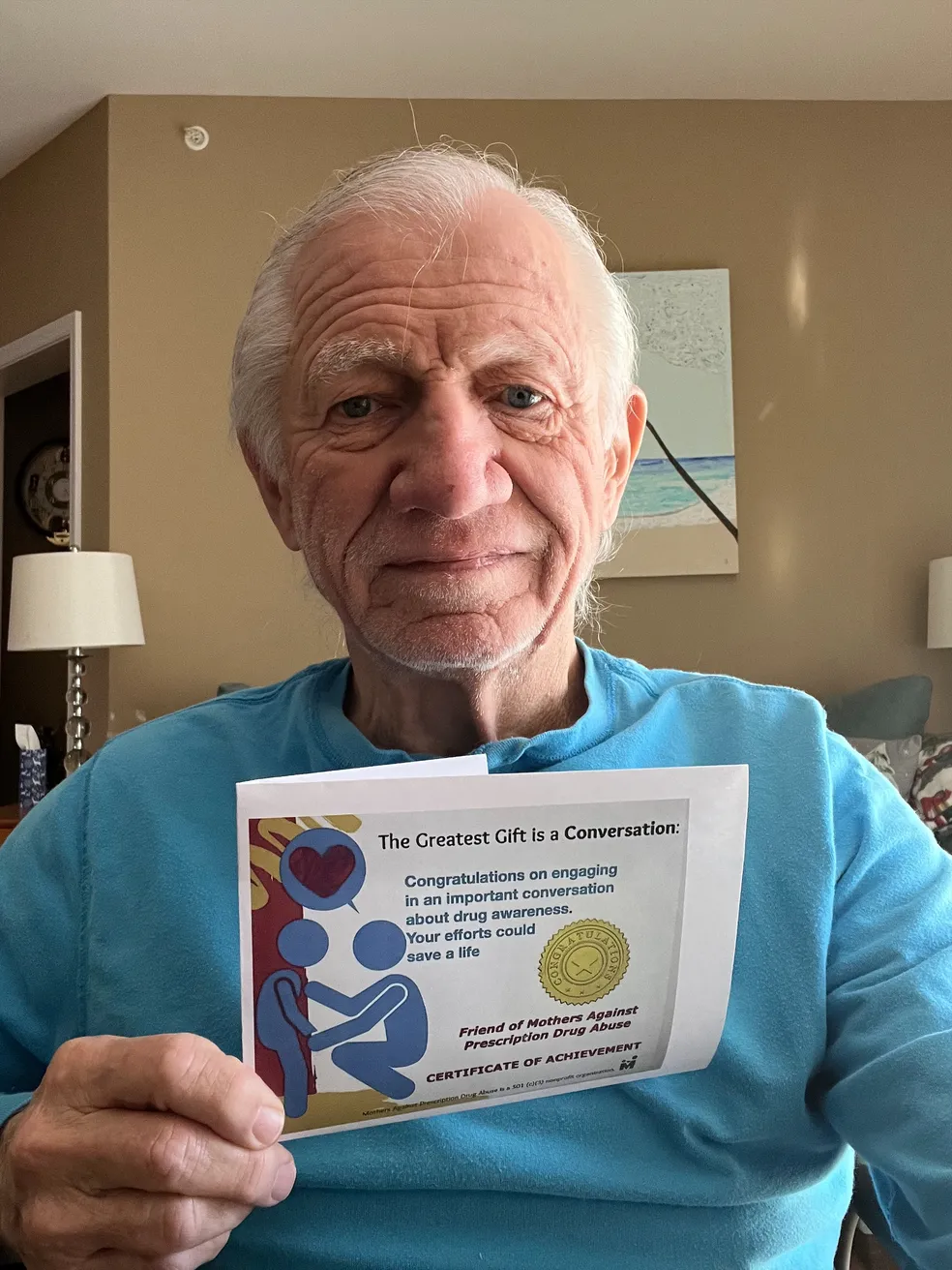
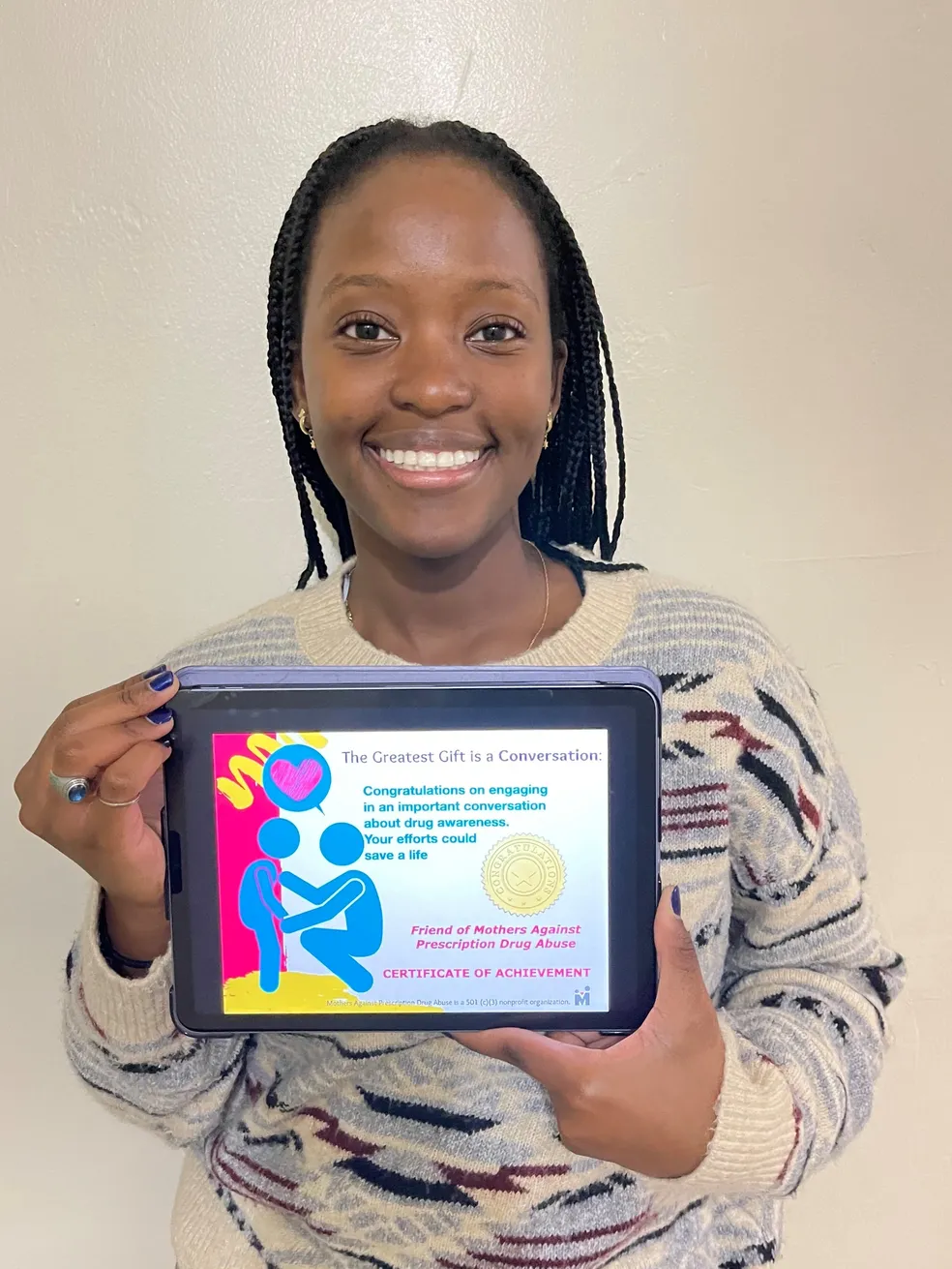
Not sure where to start? We have put together some topics and strategies put together to help you make the most of your conversation.
Start a Conversation
Talking Points For how to talk to your loved ones.
While parents can and should communicate clearly that non-use is the best decision for health, we simply can’t control every aspect of our children’s lives. There is no one-size-fits-all approach to successful dialogue with teens about substance use, but these principles may be helpful.
One of the most influential factors during a child’s adolescence is maintaining a strong, open relationship with a parent. When parents create supportive and nurturing environments, children make better decisions. If you talk to your kids directly and honestly, they are more likely to respect your rules and advice about alcohol and drug use.
Talking points for parents to talk to their teens and why it's important to talk to your child.
HOW A CHILD’S FAMILY AND ENVIRONMENT IMPACT THEM
Your child will form attitudes about drug use from what they see at home, among their friends, and in the media. Teens are likely to have peers who use drugs and influence their knowledge and decision-making. Social media will gear ads toward specific age groups and there is plenty of misinformation all over the internet.
Teens may use substances to help manage anxiety, relieve stress, distract from unpleasant emotions, or connect socially with peers. Being curious about those reasons can help them feel less judged. It may also give you a window into your teen’s underlying struggles, help them develop insight into their own behavior, and point to problems that may need professional support.
HOW TO INITIATE A CONVERSATION
When you start to talk about drugs and alcohol with your kids, you want to make sure you’re relating to them in a way they understand. Preschoolers don’t respond to the same logic as older kids and vice versa. Take advantage of “teachable moments.” If you see a character in a movie or on TV with a cigarette, talk about smoking and what it does to a person’s body. This can lead to a talk about other drugs and how they can harm.
As kids grow older, start talks by asking them what they’ve heard about drugs and what they think about them. Plan a quiet time with your child when neither of you will have other distractions, and ask in a nonjudgmental, open-ended way, so you’re more likely to get an honest response. Teens who feel like their point of view is valued may be more willing to engage in a conversation. You don’t need to agree with everything your teen says; you just need to make it clear you are listening.
DRUG INFORMATION YOU SHOULD MENTION
It’s OK not to have all the answers. There are some great online resources that can support you and your child to find out the facts together. By looking together, your child knows you are happy to help them.
Stick to the facts. If you exaggerate the harms or dangers you will sound less knowledgeable. You can include basic information such as explaining that a drug can come from plants or be manufactured, and provide examples of each. Let your child know that drugs can affect how we feel, think, and behave.
Kids are less likely than adults to take long-term consequences into account when making the decision to do drugs. It’s a good idea to talk about the immediate consequences of substance abuse with children and teens. Talk about the legal issues — jail time and fines — and the possibility that they or someone else might be killed or seriously injured.
Stay up to date with drug street names and how different drugs affect the body so you can give out the right information. If you don’t have the answers, let your child know that you will find out what they want to know.
LAY DOWN THE LAW
Your child should have no doubts about where you stand on substance use. Make it clear that you disapprove of all vaping, nicotine, and drug use. Enforce a definitive rule about not smoking or using drugs, then give them the reasons why it’s so important to follow that rule. Drugs are dangerous both physically and mentally, and you want them to live their best lives because you love them so much.
BE SPECIFIC
Be clear and specific about your expectations of how your child should behave in situations that involve drugs. A parent who says, “Be smart!” or “Make good decisions!” may think they are asking their child not to drink, while the child may interpret the instructions as, “Don’t drink enough to black out.” If you mean, “You can go out with your friends as long as you can assure me you will not smoke,” then say it that way, be specific.
Just as you need to be clear about your stance on substance use, kids need to know exactly what consequences they’ll face when they break the rules — and, most importantly, that you really will enforce those consequences. Kids are less likely to use nicotine and other substances if their parents have established a pattern of setting clear rules and consequences for breaking those rules. Those consequences should be reasonable, enforceable, and short-lived. If there’s no end in sight, teens will feel like there’s no way out and no real reason to continue to refrain from engaging in the undesired behavior.
HOW TO DISCOURAGE DRUG ABUSE
Drugs can affect any family. But by talking with your teens and staying involved in their lives, you can help keep them safe. Make talking with your teens a regular part of your day. Find time to do things you enjoy together as a family, which helps everyone stay connected and maintain open communication. Sometimes teens are more likely to talk when they don’t have to make eye contact — like when you are in the car or walking together.
Know who their friends are and where they spend their time. Teens who have friends who use drugs are more likely to try drugs themselves. Help your child know how to say “no” and turn down drugs if they are offered. Let them know they can always text or call if they want to leave a situation and you will come get them.
Self-esteem: A warm, open family environment — where kids can talk about their feelings, where their achievements are praised, and where their self-esteem is boosted — encourages them to come forward with their questions and concerns. Encourage your teens to take part in hobbies, sports, and clubs that interest them. This can help with positive interactions and self-esteem. Let your teen in on all the things you find wonderful about them. They need to hear a lot of positive comments about their lives, who they are as individuals, and all of the wonderful things they have to look forward to if they are healthy and safe.
Show interest in and discuss their daily ups and downs. You’ll earn their trust and learn how to talk to each other. Pay attention so you know when your teens are going through tough times. Offer the support they need or get extra help, if it’s needed.

